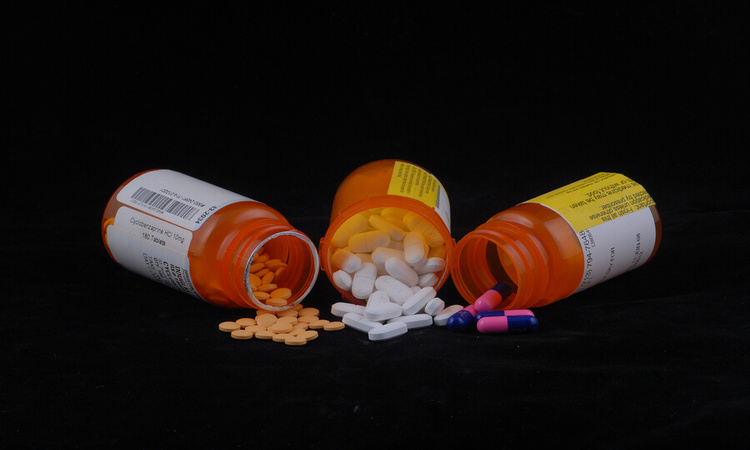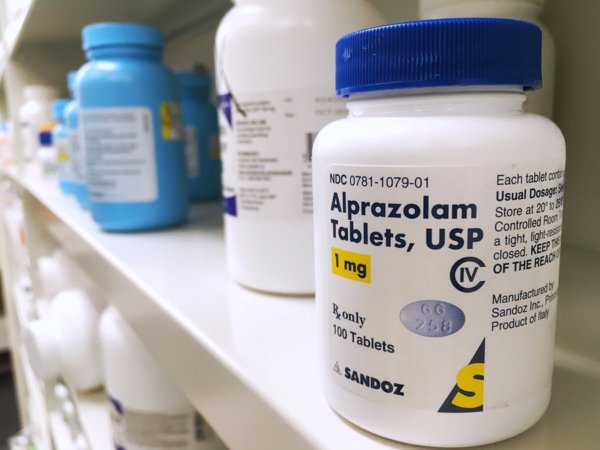
The Most Addictive Prescription Drugs – Drug addiction is a disease that negatively impacts a person’s brain and behavior, making it hard to control drug use. While many people become addicted to illegal recreational drugs, such as cocaine or heroin, it’s also possible to become dependent on drugs prescribed by a doctor.
Some prescription drugs have a higher potential for addiction than others. The majority of addictive drugs affect the brain’s reward system by overwhelming it with dopamine. This action leads to a pleasurable “high” that can compel someone to use the drug again, and over time, they may become dependent on the drug to feel good or even just normal.
List of the Most Addictive Prescription Drugs
Opioids
Opioids can induce a euphoric effect. They are usually prescribed to treat moderate-severe pain.
Signs and symptoms of opioid misuse/abuse may include the following:
- Euphoria
- Lethargy
- Drowsiness
- Confusion
- Dizziness
- Vision changes
- Headache
- Seizures
- Breathing problems
- Nausea and vomiting
- Constipation
- Behavior or personality changes
Oxycodone (OxyContin)
Oxycodone is usually sold as the brand name OxyContin, and also in combination with acetaminophen (Percocet). It changes how the central nervous system (CNS) responds to pain. Like heroin, in high doses, it produces a euphoric, sedating effect.
Codeine
Codeine is often prescribed to treat to moderate pain and is also combined with other medications to treat cold and flu symptoms in a cough syrup. When used in high quantities, codeine-based cough syrup has a sedating effect. It can also produce altered levels of consciousness.
Fentanyl
Fentanyl is a synthetic opioid that may be prescribed for both acute and chronic pain. According to the Centers for Disease Control and Prevention (CDC), fentanyl is up to 100 times more potent than morphine. It produces feelings of euphoria and relaxation. In addition to the common symptoms associated with opioid addiction, fentanyl misuse/abuse may also cause hallucinations and nightmares.
Meperidine (Demerol)
Meperidine is a synthetic opioid commonly sold under the brand name Demerol. It may be used to treat moderate-severe pain, and, like other opioids, it can induce feelings of euphoria.
Opioid Withdrawal
A person who is addicted to opioids will likely encounter withdrawal upon cessation of use. Withdrawal symptoms may include the following:
- Drug cravings
- Agitation or irritability
- Runny nose
- Sleep disturbances
- Excessive sweating and chills
- Digestive problems
Central Nervous System (CNS) Depressants
Prescription CNS depressants, typically referred to as tranquilizers and sedatives, include benzodiazepines and barbiturates, as well as sleeping pills. They have a calming effect and are generally prescribed to treat anxiety or seizures.
Signs and symptoms of depressant misuse/abuse include the following:
- Lethargy
- Drowsiness
- Irritability or agitation
- Confusion
- Impaired memory
- Dizziness
- Headache
- Vision changes
- Impaired coordination
- Slurred speech
- Nausea and vomiting
- Behavior or personality changes
Alprazolam (Xanax)
Alprazolam is a benzodiazepine commonly sold under the brand name Xanax. It can be prescribed to treat anxiety and panic disorders or insomnia. Xanax depresses the CNS, and some people misuse it for its fast-acting sedative effects.
Additional signs and symptoms of alprazolam misuse/abuse include difficulties sleeping, edema of the hands or feet, and tremors.

Diazepam (Valium) and Clonazepam (Klonopin)
Diazepam and Clonazepam are benzodiazepines like Xanax. They are primarily used to treat anxiety and panic disorders or seizures. Clonazepam is sold under the brand name Klonopin, and diazepam is sold as Valium.
Like Xanax, these drugs are often abused for their sedating effects. They induce a high that can feel comparable to the effects of alcohol. For example, they can produce feelings of intoxication and relaxation.
It’s not uncommon for people to recreationally abuse Xanax, Klonopin, or Valium in conjunction with other drugs. Symptoms of diazepam or clonazepam may also include paranoia, hallucinations, and constipation.
Zolpidem (Ambien)
Ambien is the most common brand name for zolpidem tartrate, a hypnotic drug commonly prescribed to treat insomnia and sleep difficulties. When used for a prolonged period, however, Ambien can be habit-forming.
When taken as directed by a doctor, zolpidem can help patients with insomnia get to sleep. Nevertheless, like most medications, it can also cause undesirable side effects – especially among those who misuse it.
In recent years, Ambien and related sedatives, such as Lunesta, have primarily replaced benzodiazepines, like Valium, as a short-term remedy for insomnia because they are considered safer with a lower potential for abuse and physiological dependence. However, those who use Ambien for a more extended period than recommended and abuse the drug for its euphoric properties can quickly develop a dependency.
The side effects of Ambien use vary between people, but may include the following:
- Next-day drowsiness
- Fatigue
- Dizziness
- Nausea and vomiting
- Delusions
- Hallucinations
- Sleepwalking
- Impaired coordination
- Short-term memory loss
Withdrawal from CNS Depressants
A person who is dependent on CNS depressants will develop withdrawal symptoms upon discontinuation of use. Withdrawal symptoms may vary between each different type of CNS depressant, but, in general, they share their core symptoms.
CNS depressant withdrawal symptoms may include the following:
- Drug cravings
- Anxiety
- Panic attacks
- Mood swings
- Excessive sweating
- Flushed skin
- Headache
- Sleep disturbances
- Insomnia
- Muscle and stomach pain
- Nausea and vomiting
- Seizures (rarely)
Stimulants
Stimulants boost brain activity which increases alertness and energy levels.
Signs and symptoms of misuse/abuse of stimulants may include the following:
- Euphoria
- Aggression and hostility
- Paranoia
- Hallucinations
- Suppressed appetite
- Weight loss
- Accelerated heart rate
- Vision changes
- Headache
- Nausea and vomiting
- Behavior or personality changes
- Psychosis

Amphetamine (Adderall)
Amphetamine, sold under the brand name Adderall, is sometimes referred to as “speed.” It is a stimulant drug most often used to treat attention-deficit hyperactivity disorder (ADHD) and narcolepsy.
Products that contain amphetamine are often abused non-medically for their energizing effects. For example, Adderall is often abused by people seeking to stay awake and alert for long periods, such as truck drivers and college students obligated to meet deadlines.
Symptoms of amphetamine misuse often include the following:
- Increased energy and alertness
- Increased body temperature
- Increased blood pressure and respiratory rate
- The appearance of being on edge or jittery
- Insomnia
Methylphenidate (Ritalin)
Similar to Adderall, methylphenidate, commonly sold under the brand name Ritalin, is a stimulant that affects the CNS. It boosts levels of dopamine in the brain, which helps to improve attention. It may be prescribed to treat ADHD and narcolepsy.
Like other stimulants, Ritalin can be habit-forming. Methylphenidate misuse may also lead to agitation, irritability, and trouble sleeping.
Withdrawal from Stimulants
Someone who is addicted to stimulants may develop withdrawal symptoms upon cessation of use.
Stimulant withdrawal symptoms may include the following:
- Drug cravings
- Anxiety
- Depression
- Extreme fatigue
Treatment for Addiction to Prescription Drugs
Do you suspect that you or someone you love is misusing prescription medications? If so, it is critical to seek professional help as soon as possible. You or your loved one will likely benefit from an intensive rehab program that includes medication, therapy, and counseling.
Prescription drug addiction can adversely affect one’s health and put a person at risk of a fatal overdose. Drug addiction can also damage relationships and put a strain on finances or cause legal troubles.
If you are currently abusing prescription drugs, we urge you to seek treatment as soon as possible. Midwood Addiction Treatment center offers a comprehensive approach to addiction treatment that includes evidence-based services essential to recovery, such as psychotherapy, individual and family counseling, psychoeducation, group support, and more.
Our center employs compassionate addiction professionals who administer these services to clients with care and expertise. Our staff provides clients with the tools, knowledge, and resources they so urgently need to achieve abstinence and experience long-lasting sobriety and well-being.
You can reclaim the fulfilling, drug-free life you deserve. Call us today to find out how we can help!